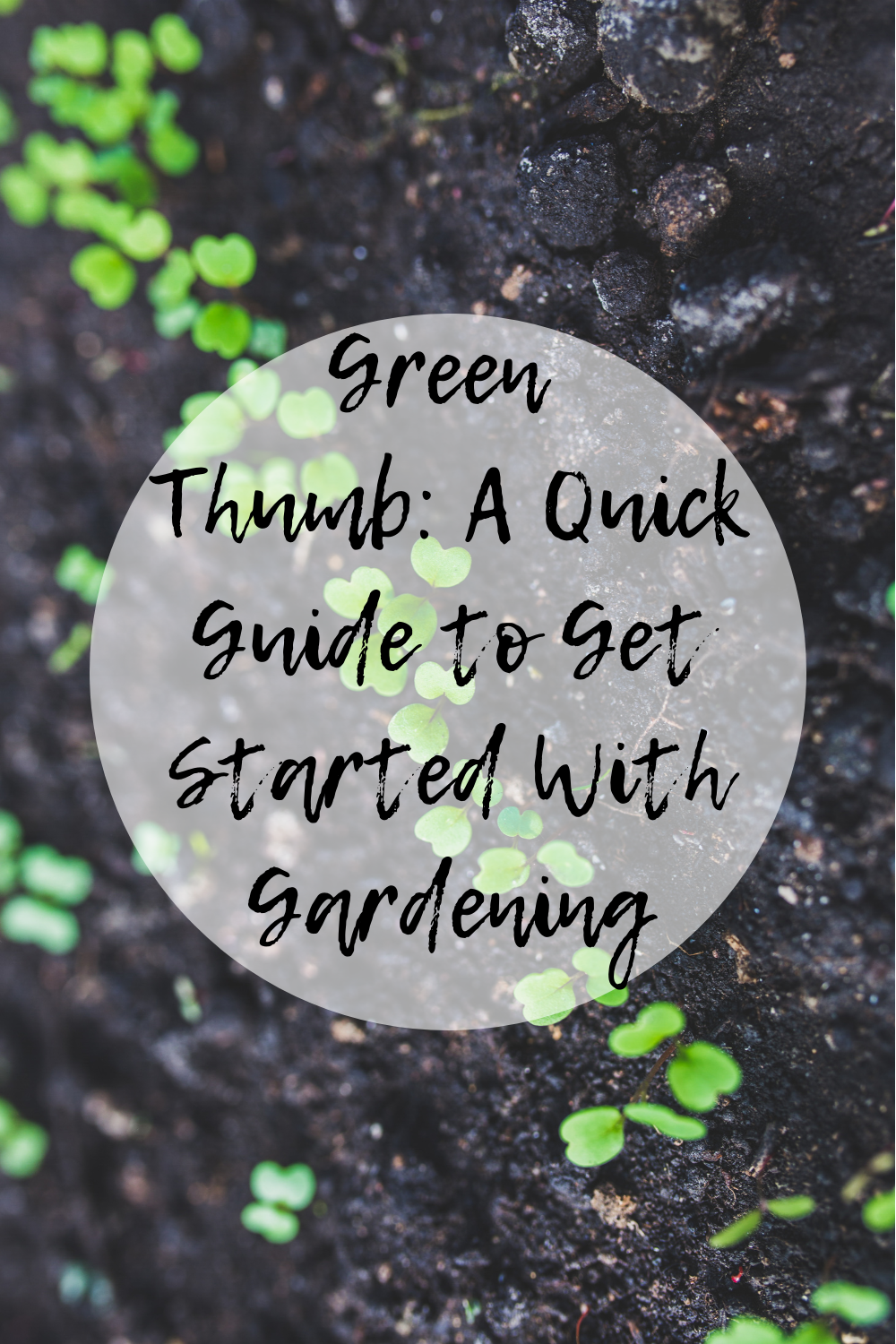
Gardening is a great hobby and a healthy way of spending some time doing something good for the planet and the environment. Starting out in gardening with no prior experience is not really that hard to do. All you need to do a little bit of research beforehand, and you should be ready to try out your green thumb in caring for and growing plants of your own in the garden or in small pots. There are a few basic things that one should do when they are only getting started, to ensure the best possible green thumb results.
Gear Up With The Right Tools
A huge part of what makes or breaks a garden is having the right set of tools to care for it. It is important to invest in tools that will help you in your journey of having a greener thumb and planting your favorite crops. It’s true that finding the right garden tools may sometimes prove to be a hassle, but don’t worry, you’ll get the hang of it. Just make sure you buy the items that will work with the type of plants you plan to get. If you have a big garden you plan to care for, then that would probably require a different set of tools than if you are planting some crops in small pots in your house. It’s important to keep that in mind when shopping for gardening tools and Gilmour hoses.
Start Out Small
Just as is the case when starting out with any new hobby or skill, when you’re trying to get into gardening and hoping to get a green thumb, you’ve got to start out small. Don’t be tempted by large plants or exotic gardening techniques at the beginning. Instead, start out with smaller plants that don’t necessarily require too much care. It’s also important to try and not spend a large sum of money on seeds or plants when you’re only starting out. Just wait until your trial and error period is over, then you can go wild and purchase different kinds of plants.
Check Out Suitable Plants For Your Location
Not all plants are the same. Each plant requires a different type of care and weather conditions to be able to grow healthily. That’s why, when buying plants or seeds for the first time, it is particularly essential to check their suitability and compatibility with the place where you plan to plant them and care for them. Some plants also require to be planted in certain seasons of the year and need specific care during that time of the year before they can be cultivated, if they produce fruit – certain citrus trees for example. It’s important to check all of those facts before making your first purchase.
Learn From Your Mistakes
When you are starting out and learning all the basics, it is only natural that you make mistakes at first. But the important thing is to keep track of those mistakes and take notes, so that you can learn from them and not repeat them when caring for new plants. Mistakes can be big or small when you are just starting out, so things like the right amount of watering needed, whether the soil is suitable or not, and when to cultivate any crops are all things you can learn while on your gardening journey. Keeping notes will help you learn quickly and improve your skills down the line.
Use Fertilizers And Pesticides
When it comes to gardening in your own back or front yard with natural soil, it is not uncommon that the soil needs a bit of external help to maintain the plants’ health. Don’t be afraid to use fertilizers to enhance the quality of the crops or leaves of the plants, and use pesticides in case you find any insects or pests that could damage your garden. Some insects can be harmful to your plants, while others are safe and can actually benefit your garden.
If you’re looking for a hobby that will soothe you and keep you calm for hours on end, then search no more. Having a green thumb and keen energy to care for plants is a great hobby for anyone to have. This hobby can easily be developed in a short period of time if you’re really enthusiastic about learning and eager to get creative with your personal garden. Make sure you do lots of research before purchasing any new plants or products so that you can get the items that suit your specific needs. And remember to always enjoy yourself while gardening, as it would most likely reflect on your plants.






donna porter says
My husband and I plant a veggie garden every year. It is a small garden and does not always do the best but we try every year anyway!
Sarah L says
See if a local botanic garden has classes for beginning gardeners. Here in Denver the Denver Botanic Gardens has lots of different classes.